Business
£4 billion lost to fraud and errors in HMRC’s flagship ‘innovation programme’

A government program designed to promote innovation and boost the economy has lost more than £4 billion to fraud and errors since 2020, due to widespread abuse.
The research and development (R&D) tax credit program, intended to spur leading innovation, has been plagued by dubious claims and has turned into what experts describe as a “wild west.” Claims include a window cleaning company’s “pioneering” method of keeping a water bucket at height, a pub adding vegan and gluten-free options to its menu, and companies redesigning their corporate websites.
According to HM Revenue and Customs (HMRC) annual report, the estimated costs of fraud and errors in the scheme between 2020-21 and 2023-24 totaled more than £4.1 billion. HMRC reported that emergency spending in 2023-2024 was £7.7 billion.
The revelation comes as Chancellor Rachel Reeves promises to crack down on tax fraud and non-compliance, with Labor aiming to recover £5 billion in tax revenue by the end of the current Parliament. Tax officials labeled the fraud and errors in research and development tax credits as “clearly unacceptable,” and promised public action.
Colin Hailey, an expert on technology taxes, testified before Parliament more than six years ago about abuses in the scheme. He criticized the lack of proper monitoring by HMRC and pointed to the role of agents claiming high commissions for making these dubious claims. “It was the wild west. These consultants were cold calling companies and saying, ‘You don’t think you’re doing R&D, but we can help you,'” Hailey said.
Businesses from a range of sectors, including care homes, pubs, fitness centers and dental practices, were inundated with calls from agents urging them to apply for the tax breaks. A tax consultancy firm claimed to have saved a hotel and pub in Chester £28,000 for “innovative menus, catering for vegan and gluten-free diets”.
HMRC has not confirmed whether such claims were legitimate. However, a House of Lords sub-committee on financial bills heard in November 2022 that some advisers were boasting a 99% acceptance rate of HMRC claims, calling the scheme ‘free money’.
The scheme, introduced in 2000 to tackle falling R&D spending in Britain, reduces a company’s corporation tax or provides a direct payment if the claim represents significant progress in addressing scientific or technological uncertainty. vanquish.
HMRC’s annual accounts show that errors and fraud in the scheme cost £1.127 billion in 2020-21, £1.337 billion in 2021-22, £1.051 billion in 2022-23 and £601 million in 2023-24. An analysis of small and medium business claims in 2021-2022 shows that around one in four contain errors or fraud, marking this as one of the highest rates of non-compliance among government spending programmes.
In response, HMRC is now rigorously monitoring claims and increasing compliance investigations to recoup some of the billions lost.
An HMRC spokesperson said: “We generated a record £843.4 billion in tax revenue last year, an increase of 3.6% on the previous twelve months. Public money is at stake in R&D claims, and taxpayers rightly expect us to scrutinize them. We do this thoroughly and honestly, and the vast majority of valid claims are paid on time. But the level of non-compliance within these arrangements is clearly unacceptable, and the public rightly expects us to take action. This includes better help, guidance and processes, as well as decisive action against the minority who deliberately seek to abuse the schemes.”









